‘Walking and shooting, as if out for a stroll’: how the Moscow attack unfolded
A breaking window was opening salvo of the worst terrorist attack on Russian soil for two decades. It ended with the concert hall burnt to a shell.
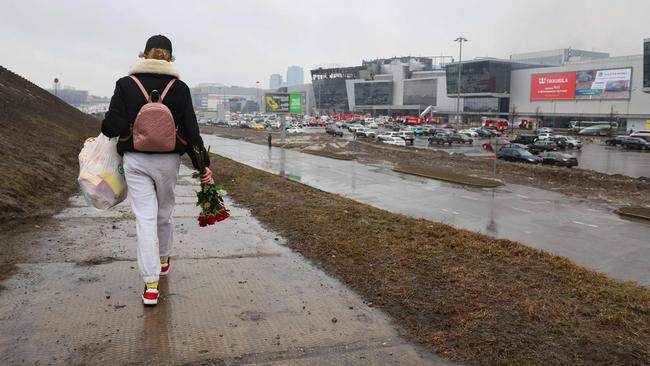
The killers walked calmly through the lobby of the venue “as if they were out for a stroll”, shooting as they went, before storming the auditorium where concertgoers had fled in search of refuge, a lawyer caught up in the Moscow music venue attack recalled on Saturday.
Andrei, 58, had gone to Crocus City Hall with his wife to see a sold-out concert by Picnic, a rock band, on Friday night. He had bought her the tickets as a present for International Women’s Day.
The couple were drinking coffee together shortly before 8pm in a cafe on the venue’s second floor when they heard shots in the lobby below and saw people begin to flee. “Then I saw a window break,” Andrei said. “And I realised that it was shots from an automatic rifle, probably a Kalashnikov, because the glass there is very strong, and it is difficult to break it with a pistol shot.”
He had just heard the opening salvo of the worst terrorist attack on Russian soil for two decades. It ended with the concert hall burnt to a shell – and President Putin facing fresh questions about his leadership days after he secured another six years in power in elections that followed the harshest crackdown on dissent since the Soviet era.
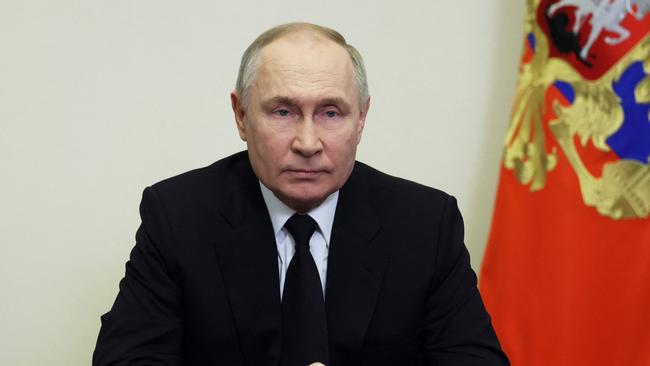
By late Saturday 11 suspects were in custody and the official death toll had risen to 133. Almost 200 were injured. The victims appeared to have died either from gunshot wounds or from inhaling smoke from explosive devices.
The carnage inside the venue was appalling: mothers hugging their children in a final embrace were among the 28 bodies found in one of the lavatories, according to Baza, a Russian media channel with ties to the security establishment.
Isis-Khorasan, or ISIS-K, an Islamic State affiliate in Afghanistan, took responsibility, a claim later confirmed by the US authorities. Russian officials reported that the perpetrators were from Tajikistan, a largely Muslim former Soviet republic. Tajik authorities denied that some of the suspects named in Russian media were involved.
Hours after the shooting began, Putin declared Sunday a national day of mourning. His five-minute televised address on Saturday afternoon sought to link the attack to Ukraine, which Russia invaded two years ago.
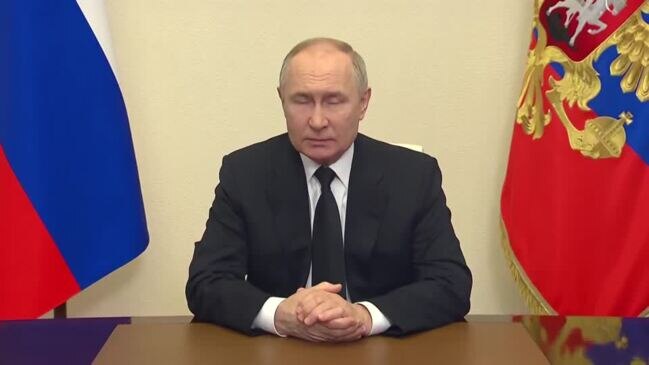
“All four perpetrators of the terrorist act who shot and killed people have been detained,” Putin said. “They were travelling towards Ukraine,” he added, claiming that “the Ukrainian side” had “prepared a window” for their escape. He pledged to “punish everybody who stood behind the terrorists, who prepared the attack” but made no mention of Islamic State.
Maria Zakharova, the Russian foreign ministry spokesman, accused Kyiv of abetting the “bloody bastards”, who targeted the hall in Krasnogorsk, 15 miles northwest of Moscow.
John Kirby, the White House national security communications adviser, said on Friday that there was “no indication at this time that Ukraine or Ukrainians were involved”. There was further confusion when it emerged the suspects may have been fleeing to neighbouring Belarus rather than Ukraine. The Belarusian ambassador in Moscow claimed that Minsk’s special forces had been involved in an operation to stop them “escaping across the shared border”.
Kyiv vehemently denied any involvement and the Ukrainian foreign ministry accused Russia of stirring up “anti-Ukrainian hysteria”, warning that Putin would try to exploit the tragedy to “boost mobilisation”.
More than 6,000 people are thought to have been in the venue at the time of the attack. Andrei and his wife were among them, looking forward to the band coming on stage. Immediately after he saw the window smash Andrei, a veteran of the Soviet Union’s war in Afghanistan, spotted three bearded men of “eastern appearance” – thought to mean Central Asians – entering the lobby.
“Slowly, unhurriedly, confidently and calmly they walked down the hall, in parallel firing a machinegun at people. Walking and shooting, as if they were out for a stroll.
One of them ran out of cartridges – he stopped and calmly changed them. Two floors above, the couple hid behind a pillar. “I prayed that none of them would raise their heads and look up at us,” Andrei said.
Staff began to shepherd panicking concertgoers into the auditorium, opening emergency exits on both sides of the stage. He and his wife followed them. But the terrorists then entered too. “Suddenly shots rang out in the hall,” he continued. “Some people hid behind the chairs, some fell to the floor.” There were then two explosions, which he thought had been caused by petrol bombs, followed by clouds of brown smoke. Someone shouted “fire”.
Amid the chaos, Andrei and his wife tried to run out of the hall, but they became trapped behind a crowd. The terrorists, meanwhile, appeared to be shooting from different places. “People were screaming, in a panic and running backwards and forwards.”
They eventually made it out into the car park through a service door and reached their car. At that point, the roof, which was eventually destroyed by the blaze, had not yet started to burn, but there was already smoke. “My wife and I realised right away that if we panicked, we won’t get out,” he said. “We were most afraid that we would burn or be taken hostage.”
Other survivors also shared their stories. Daria was staying with her seven-year-daughter in a hotel that was also part of the Crocus complex. They had come for a children’s ballroom dancing championship also being held there. Along with others, they first sought refuge in their room, pushing a wardrobe against the door to stop the gunmen breaking in.
They then decided to try to escape, and were led out of the building by a security guard through a back entrance. “He asked us to be very quiet so none of the terrorists would notice,” she said. “He said that the terrorists were still in the building and were shooting at point-blank range.”
Others were less fortunate: Nikolai Figurin described how his brother and his wife were among those who died during the attack – and said they still did not know whether Zlata, their 16-year-old daughter, had survived.
The attack provoked international condemnation. “We offer our heartfelt condolences and express our deepest sympathy to the families of the many victims,” Lord Cameron of Chipping Norton, the foreign secretary, said. “Nothing can ever justify such horrific violence.”
MI5 is concerned that Isis is regrouping after the dismantling of its caliphate in Syria and Iraq, with Isis-K “one of the affiliates we are most concerned about,"a UK security source said lon Saturday night. The affiliate’s ability to strike beyond its own borders was made abundantly clear in January, when it carried out twin bombings in Iran that killed nearly 100 people.
On Saturday, as sleet fell, long queues of Muscovites gathered outside hospitals to donate blood. Others queued to lay flowers behind the concert hall.
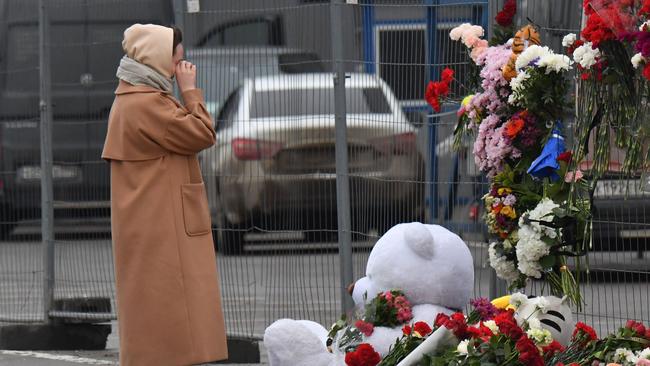
By Saturday lunchtime, there had been no word from Putin. Critics questioned why he had been so slow to speak out. The Kremlin revealed only that he had called Aleksandr Lukashenko, the autocratic leader of neighbouring Belarus. Already, an official narrative pointing a finger towards Kyiv had begun to emerge. The FSB, the domestic security agency, said that 11 people including four terrorists had been arrested in Bryansk, near the border with Ukraine.
A white Renault that Russian authorities had previously said they had been looking for was reported to have been found in a silver birch forest near the border. The attack had been “carefully planned” by the terrorists, who had been working in close co-operation with Ukrainian contacts, the FSB claimed. It said a cache of weapons had been discovered.
On Telegram, videos were shared of one man with a bloodied face and another visibly shaking while they were interrogated by Russian soldiers.
Bound and speaking in broken Russian, one man apparently of central Asian origin, his bottom lip trembling, said that he had been paid 500,000 rubles (about $8300) to massacre unarmed civilians.
The Kremlin instructed Russian state media to highlight the “Ukrainian traces” of early investigations into the terror attacks, according to Meduza, an independent outlet based in Riga, citing two unnamed sources.
But holes in the Russian accounts started to emerge after the Tajik foreign ministry denied that three of the alleged perpetrators named on Russian Telegram channels had been involved - and even produced pictures of two men, Rivodjiddin Islomov and Makhmadrasul Nasriddinov, apparently holding up their passports back in Tajikistan. The Tajik foreign ministry said the third man, Rustam Nazarov, “is currently working as a taxi driver in Samara”.
The Sunday Times


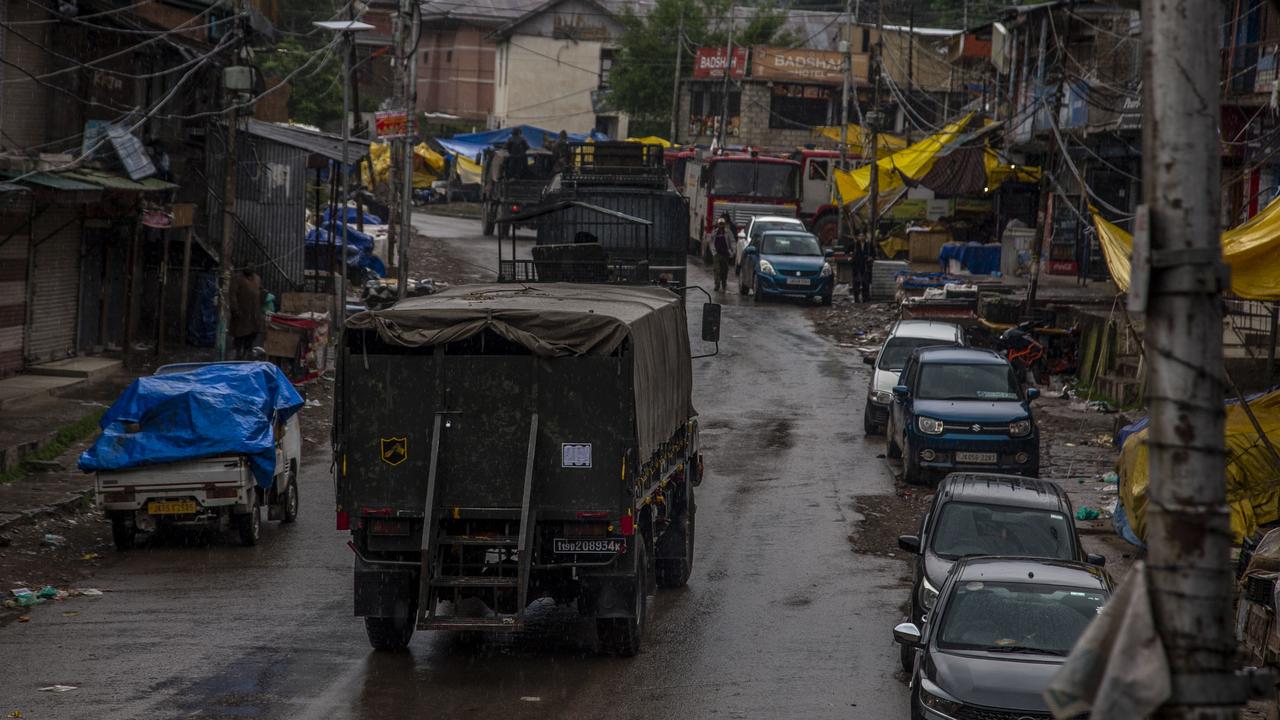
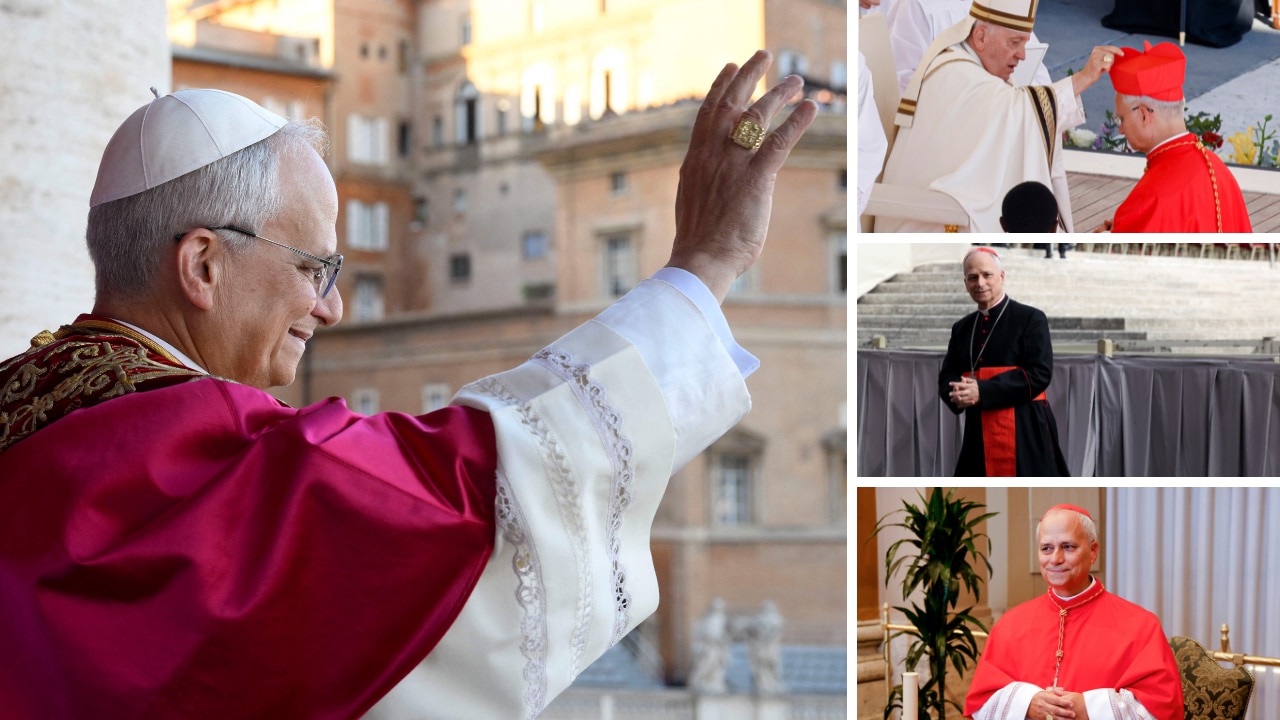
To join the conversation, please log in. Don't have an account? Register
Join the conversation, you are commenting as Logout